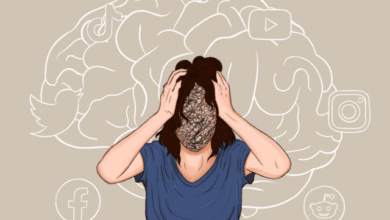Discover effective strategies for managing anxiety levels

Life throws a lot at us. Stress from work, relationships, finances – it all adds up. Sometimes, that buildup manifests as anxiety, a feeling most of us experience from time to time. But what happens when anxiety feels…different? What happens when it starts to feel like you’re losing touch with reality? It’s important to understand that intense anxiety can, in rare cases, be connected to experiences that might resemble symptoms of psychosis. This isn’t meant to scare you, but to empower you with knowledge. We’ll explore the connection between anxiety and psychosis, what to look for, and, most importantly, where to find help. We’ll cover everything from recognizing severe anxiety symptoms to understanding the difference between anxiety-related experiences and a psychotic episode, and how to navigate seeking support. This article will also touch on anxiety disorders like generalized anxiety disorder, panic disorder, and social anxiety, and how they can sometimes overlap with experiences that might seem frightening or confusing.
Key Takeaways
- Anxiety and psychosis are distinct conditions, but intense anxiety can sometimes trigger experiences similar to psychosis in vulnerable individuals.
- Recognizing the difference between high anxiety and a break from reality is crucial for getting the right support.
- Symptoms like hallucinations or delusions, especially if new or severe, require immediate professional evaluation.
- Early intervention and treatment are key to managing both anxiety and any potential psychotic symptoms.
- Self-care strategies like mindfulness, exercise, and a healthy diet can help manage anxiety levels.
- Seeking professional help from a therapist or psychiatrist is essential for a proper diagnosis and treatment plan.
- There is hope, and recovery is possible with the right support and care.
What is Anxiety? A Closer Look
Anxiety is a natural human emotion. It’s your body’s way of responding to stress. A little anxiety before a big presentation can be motivating. But when anxiety becomes excessive, persistent, and interferes with your daily life, it can become an anxiety disorder. There are several types of anxiety disorders, including generalized anxiety disorder (GAD), panic disorder, social anxiety disorder, and specific phobias. Symptoms can range from racing thoughts and restlessness to physical symptoms like a rapid heartbeat, sweating, and difficulty breathing. Many people experience anxiety attacks, which can feel incredibly frightening, but are generally not dangerous. Understanding your specific anxiety triggers and patterns is the first step towards managing it. Cognitive Behavioral Therapy (CBT) is a common and effective treatment for many anxiety disorders, helping you identify and change negative thought patterns.
Understanding Psychosis: Beyond the Stigma
The word “psychosis” often carries a lot of stigma, and that can prevent people from seeking help. Simply put, psychosis is a condition that affects the way your brain processes information. It can cause you to experience things that aren’t real, like hearing voices (auditory hallucinations) or believing things that aren’t true (delusions). It’s important to remember that psychosis is a symptom, not a disease in itself. It can be caused by a variety of factors, including mental health conditions like schizophrenia and bipolar disorder, substance abuse, medical conditions, or even extreme stress. Experiences of psychosis can be incredibly distressing for both the person experiencing them and their loved ones. Early diagnosis and treatment are vital for recovery.
The Connection: How Anxiety Can Sometimes Mimic Psychosis
This is where things get a little complex. While anxiety and psychosis are different, there’s a connection. Severe anxiety can, in some cases, trigger experiences that resemble psychotic symptoms. This is often referred to as a “brief psychotic episode” or “anxiety-induced psychosis,” though the latter term is less commonly used by professionals. Here’s how it can happen:
- Depersonalization/Derealization: Intense anxiety can cause feelings of detachment from yourself (depersonalization) or from reality (derealization). This can feel like you’re watching yourself from outside your body or that the world around you isn’t real. These feelings, while distressing, are often a symptom of severe anxiety, not psychosis.
- Intrusive Thoughts: Anxiety can lead to intrusive, unwanted thoughts that are disturbing or frightening. While these thoughts are distressing, they are usually recognized as thoughts, not beliefs. In psychosis, delusions are firmly held beliefs despite evidence to the contrary.
- Heightened Sensory Perception: Extreme anxiety can heighten your senses, making you more aware of sounds, lights, and smells. This can sometimes be misinterpreted as a hallucination.
- Panic Attacks: The intense fear and physical sensations of a panic attack can be so overwhelming that they can feel like a loss of control or a break from reality.
It’s crucial to understand that these anxiety-related experiences are usually temporary and resolve when the anxiety is brought under control. However, it’s essential to rule out other potential causes, especially if these experiences are new, severe, or persistent.
When to Worry: Recognizing the Signs of a True Psychotic Episode
While anxiety can sometimes mimic psychosis, it’s vital to be able to recognize the signs of a true psychotic episode. These include:
- Hallucinations: Hearing voices, seeing things that aren’t there, or experiencing other sensory hallucinations.
- Delusions: Firmly held beliefs that are not based in reality, such as believing you are being persecuted or that you have special powers.
- Disorganized Thinking: Difficulty thinking clearly, speaking incoherently, or jumping from one topic to another.
- Changes in Behavior: Significant changes in personality, social withdrawal, or neglecting personal hygiene.
- Loss of Insight: A lack of awareness that something is wrong.
If you or someone you know is experiencing these symptoms, it’s crucial to seek professional help immediately. Don’t dismiss these experiences as “just anxiety.”
The Role of Trauma and Stress
Trauma and chronic stress can significantly increase the risk of both anxiety disorders and psychosis. Experiences like childhood abuse, neglect, or witnessing violence can have a lasting impact on brain development and increase vulnerability to mental health problems. Stress hormones, like cortisol, can also play a role in triggering psychotic symptoms in individuals who are already predisposed. Addressing trauma through therapy, such as Eye Movement Desensitization and Reprocessing (EMDR) or Trauma-Focused Cognitive Behavioral Therapy (TF-CBT), can be an important part of recovery. Building resilience through stress management techniques, like mindfulness and meditation, can also help protect against the negative effects of stress.
Medical Conditions That Can Cause Psychotic Symptoms
It’s important to remember that psychosis isn’t always caused by a mental health condition. Certain medical conditions can also trigger psychotic symptoms, including:
- Infections: Severe infections, such as encephalitis or meningitis.
- Neurological Disorders: Conditions like epilepsy or brain tumors.
- Autoimmune Diseases: Certain autoimmune disorders, such as lupus.
- Substance Abuse: Drug or alcohol use, especially stimulants like methamphetamine.
A thorough medical evaluation is essential to rule out any underlying medical causes of psychotic symptoms.
Treatment Options: Managing Anxiety and Psychosis
Treatment for anxiety and psychosis depends on the specific diagnosis and severity of symptoms.
- Anxiety: Therapy (CBT, exposure therapy), medication (antidepressants, anti-anxiety medications), and lifestyle changes (exercise, diet, mindfulness).
- Psychosis: Antipsychotic medication, therapy (CBT, family therapy), and psychosocial support (supported employment, social skills training).
In some cases, a combination of both medication and therapy may be recommended. It’s important to work with a qualified mental health professional to develop a treatment plan that is tailored to your individual needs.
Self-Care Strategies for Managing Anxiety
While professional help is essential, there are also things you can do on your own to manage your anxiety:
- Practice Mindfulness: Focus on the present moment without judgment.
- Exercise Regularly: Physical activity releases endorphins, which have mood-boosting effects.
- Get Enough Sleep: Aim for 7-8 hours of sleep per night.
- Eat a Healthy Diet: Avoid processed foods, sugary drinks, and excessive caffeine.
- Connect with Others: Spend time with loved ones and engage in social activities.
- Limit Exposure to Stressors: Identify and reduce sources of stress in your life.
Supporting a Loved One Experiencing Psychosis
If you’re supporting a loved one who is experiencing psychosis, it’s important to be patient, understanding, and non-judgmental. Here are a few tips:
- Encourage them to seek help.
- Listen to their experiences without arguing or trying to convince them that their beliefs are not real.
- Create a safe and supportive environment.
- Learn about psychosis and treatment options.
- Take care of yourself. Supporting someone with a mental health condition can be emotionally draining.
Finding Help: Resources and Support
If you are struggling with anxiety or experiencing symptoms of psychosis, please reach out for help. Here are some resources:
FAQs
Q: Can anxiety cause psychosis?
A: While anxiety doesn’t directly cause psychosis, severe and prolonged anxiety can, in vulnerable individuals, trigger experiences that resemble psychotic symptoms. It’s more accurate to say anxiety can be a contributing factor in some cases.
Q: What’s the difference between a hallucination and an illusion?
A: A hallucination is perceiving something that isn’t there at all (like hearing a voice when no one is speaking). An illusion is a misinterpretation of a real sensory stimulus (like seeing a coat rack and thinking it’s a person).
Q: Is psychosis always a sign of a serious mental illness?
A: No. Psychosis can be caused by a variety of factors, including medical conditions, substance abuse, and extreme stress. It’s important to get a proper diagnosis to determine the underlying cause.
Q: How long do anxiety-induced psychotic symptoms typically last?
A: Anxiety-induced experiences that mimic psychosis are usually temporary and resolve when the anxiety is effectively managed. However, the duration can vary depending on the severity of the anxiety and individual factors.
Q: What should I do if I’m worried about someone who might be experiencing psychosis?
A: Encourage them to seek professional help. If they are in immediate danger to themselves or others, call 911 or take them to the nearest emergency room.
It’s okay to not be okay. Remember, seeking help is a sign of strength, not weakness. You are not alone, and there is hope for recovery. If you’re struggling, please reach out to a trusted friend, family member, or mental health professional. Sharing your experiences can be the first step towards feeling better. Don’t hesitate to connect with the resources listed above – they are there to support you. And please, share this article with anyone you think might benefit from it. Let’s work together to break the stigma surrounding mental health and create a more compassionate and understanding world.
Hi, I’m Sophia! Welcome to my blog Try Stress Management (trystressmanagement.com), where I share simple, down-to-earth ways to handle stress and bring more calm into everyday life. Think of me as your friendly guide, offering practical tips, reflections, and little reminders that we’re all figuring this out together.
When I’m not blogging, you’ll usually find me with a good book, sipping tea, or exploring new walking trails. I believe small changes can make a big difference—and that a calmer, happier life is possible for everyone.



